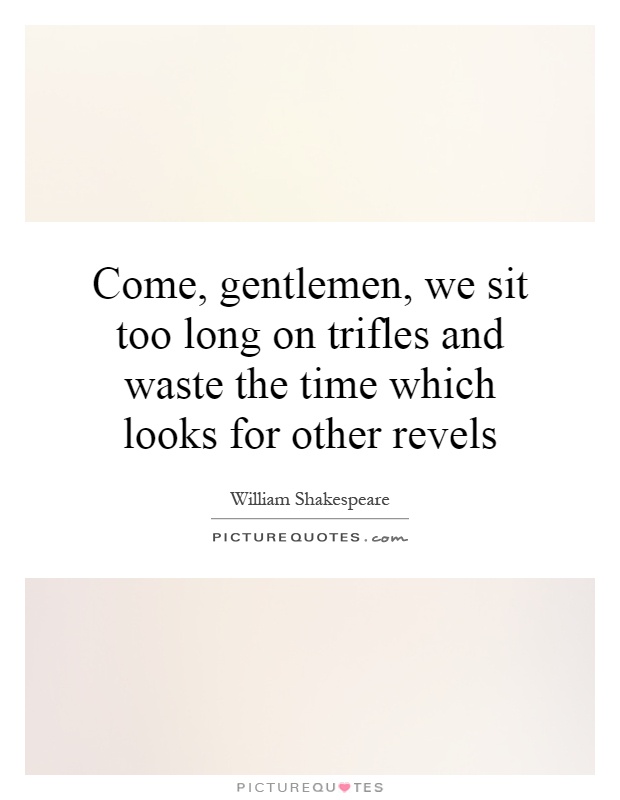Come, gentlemen, we sit too long on trifles and waste the time which looks for other revels

Come, gentlemen, we sit too long on trifles and waste the time which looks for other revels
In William Shakespeare's play, "The Taming of the Shrew," the character Petruchio speaks the line, "Come, gentlemen, we sit too long on trifles and waste the time which looks for other revels." This line is spoken during a scene in which Petruchio is trying to convince his friends to leave the house of his new wife, Kate, and continue on with their revelry elsewhere.The line is significant in the context of the play because it reflects Petruchio's impatience with the trivial matters that are occupying his friends' attention. He is eager to move on to more important and enjoyable activities, and he sees their current preoccupation as a waste of time. This sentiment is in keeping with Petruchio's character, who is portrayed as a bold and decisive man who is not afraid to speak his mind.
The line also serves to highlight the theme of appearance versus reality in the play. On the surface, Petruchio's friends may appear to be enjoying themselves and having a good time, but in reality, their revels are shallow and meaningless. Petruchio sees through this facade and urges them to move on to more substantial pursuits.
Furthermore, the line can be interpreted as a commentary on the fleeting nature of time and the importance of making the most of the present moment. Petruchio is aware that time is precious and should not be wasted on trivial matters. He encourages his friends to seize the day and make the most of their time together.
Overall, this line from "The Taming of the Shrew" is a powerful reminder to live in the moment, to focus on what truly matters, and to not waste time on trifles. It is a call to action to make the most of our time on this earth and to seek out the revels that truly bring us joy and fulfillment.












 Friendship Quotes
Friendship Quotes Love Quotes
Love Quotes Life Quotes
Life Quotes Funny Quotes
Funny Quotes Motivational Quotes
Motivational Quotes Inspirational Quotes
Inspirational Quotes